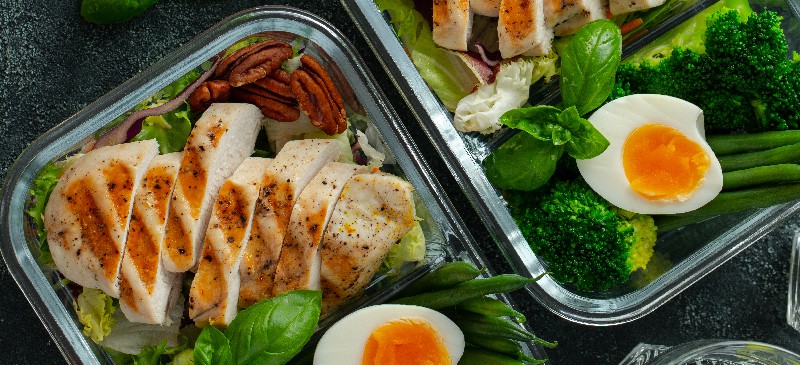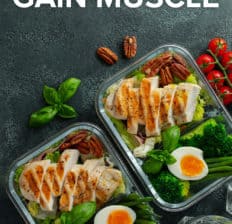This Dr. Axe content is medically reviewed or fact checked to ensure factually accurate information.
With strict editorial sourcing guidelines, we only link to academic research institutions, reputable media sites and, when research is available, medically peer-reviewed studies. Note that the numbers in parentheses (1, 2, etc.) are clickable links to these studies.
The information in our articles is NOT intended to replace a one-on-one relationship with a qualified health care professional and is not intended as medical advice.
This article is based on scientific evidence, written by experts and fact checked by our trained editorial staff. Note that the numbers in parentheses (1, 2, etc.) are clickable links to medically peer-reviewed studies.
Our team includes licensed nutritionists and dietitians, certified health education specialists, as well as certified strength and conditioning specialists, personal trainers and corrective exercise specialists. Our team aims to be not only thorough with its research, but also objective and unbiased.
The information in our articles is NOT intended to replace a one-on-one relationship with a qualified health care professional and is not intended as medical advice.
How to Eat to Gain Muscle
January 4, 2025

Many people wonder how to eat to gain muscle, and the inability to grow muscles may be related to lack of proper exercise and poor diet. Sufficient calories and protein are necessary to build muscle, and there are proven ways on how to eat to gain muscle.
There are many different body types. Some people put on weight easier than others, and some people lose weight easier than others.
For those who are looking to pack on some muscle, following the proper eating program is critical along with doing weight training exercise.
If you want to gain weight and muscle naturally, here are the top tips on how to eat to gain muscle fast.
Top foods to gain muscle
Here are the best foods to include in a muscle-building program:
- Whole eggs. A whole egg contains vital nutrients, protein and fats to help build muscle.
- Clean lean protein. Aim for five to eight ounces per meal of high-quality lean protein. Try some of the best high-protein foods here.
- Broccoli. And other cruciferous vegetables can help with fat loss and have essential nutrients for building muscle.
- Wild-caught fish. Omega-3s in wild-caught fish help reduce inflammation and are critical for muscle building.
- Almond butter. Almonds nutrition provides L-arginine to increase NO2 and vitamin E that will help reduce damage from free radicals after a heavy workout.
- Sweet potatoes. Sweet potatoes and yams are excellent sources of carbohydrates that are alkaline and gluten-free and can help pack on some healthy pounds.
- Banana. This smooth and sweet fruit is perfect for adding into smoothies for extra calories and is full of nutrients that support muscle health.
Foods to avoid
- White sugar. Will increase free radical damage from hard workouts, leading to fatigue.
- Alcohol. Empty calories and can remove critical nutrients from your body.
- White and wheat products. Stay away from bleached white products like white bread, white pasta and wheat products. They contain antinutrients that can slow muscle growth.
- Hydrogenated oils. Found in vegetable oil, soybean oil, corn oil and canola oil, hydrogenated oils cause inflammation, which slows recovery of muscles.
Natural muscle-building supplements
On top of learning how to eat to gain muscle, here are the top five supplements to help you naturally build muscle:
1. Whey protein (1–2 scoops daily)
Whey protein helps increase protein intake and is rapidly absorbed by the body so it’s a perfect protein right before or after a workout.
Avoid whey protein powders that have artificial sweeteners. Look for undenatured whey protein preferably from grass-fed cows with natural sweeteners, such as stevia.
Whey is far from the only protein powder that can help build muscle, however. Try bone broth, collagen and other protein powders as well as part of your pre-workout and post-workout meals.
2. BCAAs (follow instructions)
Branch-chain amino acids (BCAAs) are critical for muscle formation and can help build muscle mass.
3. L-arginine (1,000 milligrams twice daily)
L-arginine helps with blood vessel dilation and improves blood flow.
4. L-glutamine (5–10 grams daily)
This amino acid helps with muscle recovery and preventing catabolism.
5. Creatine monohydrate (1–3 grams daily)
Creatine monohydrate helps increase muscle strength so you can train harder. Be aware that consuming more than 1–3 grams daily may be hard on kidneys.
Frequently asked questions
How much protein should I eat to gain muscle?
To gain muscle, aim to consume 1.6 to 2.2 grams of protein per kilogram of body weight (0.7 to 1.0 grams per pound) per day. For example, a 154-pound person would need around 112–154 grams of protein daily.
Lean meats, fish, eggs, dairy, and plant-based sources like beans and lentils are excellent protein sources.
How many calories should I eat to gain muscle?
To gain muscle, you need to be in a caloric surplus, consuming about 10% to 20% more calories than your maintenance level.
On average, that means roughly:
- Men: 2,800–3,200 calories/day
- Women: 2,200–2,500 calories/day
Adjust based on your activity level, metabolism and training intensity.
How should I be eating to gain muscle?
- Prioritize protein: Include protein in every meal.
- Carbs for energy: Consume complex carbs like oats, sweet potatoes and brown rice.
- Healthy fats: Include avocado, nuts and olive oil.
- Frequent meals: Eat 4–6 balanced meals/snacks throughout the day.
- Stay hydrated: Water supports muscle recovery and performance.
What food is best for muscle growth?
Top muscle-building foods include:
- Chicken breast
- Lean beef
- Eggs
- Salmon and tuna
- Greek yogurt
- Quinoa
- Cottage cheese
- Chickpeas and lentils
- Whey protein
What helps muscle grow faster?
- Progressive overload: Gradually increase weight or intensity in workouts.
- Adequate protein intake: Ensure consistent protein consumption.
- Quality sleep: Aim for 7–9 hours of sleep per night.
- Proper hydration: Stay hydrated for optimal muscle function.
- Consistency: Stick to a regular training and nutrition plan.
Are 3 meals a day enough to build muscle?
Yes, 3 meals a day can be enough to build muscle, provided each meal is high in protein and meets your caloric needs. However, spreading protein intake across 4–6 smaller meals may optimize muscle protein synthesis and recovery.
Other muscle-building tips
If you are trying to gain muscle, doing heavy weight training of 6–12 reps, five days a week, for 45–75 minutes is ideal. Also, limit traditional cardio, and when you do cardio, opt for burst training instead.
Try this recipe for the Superhuman Shake — because if you want to pack on muscle, make sure to consume plenty of calories in liquid form.
Consuming a shake a couple times a day with raw eggs, protein powder, coconut milk, milk and almond butter can help you get the extra calories you need.


